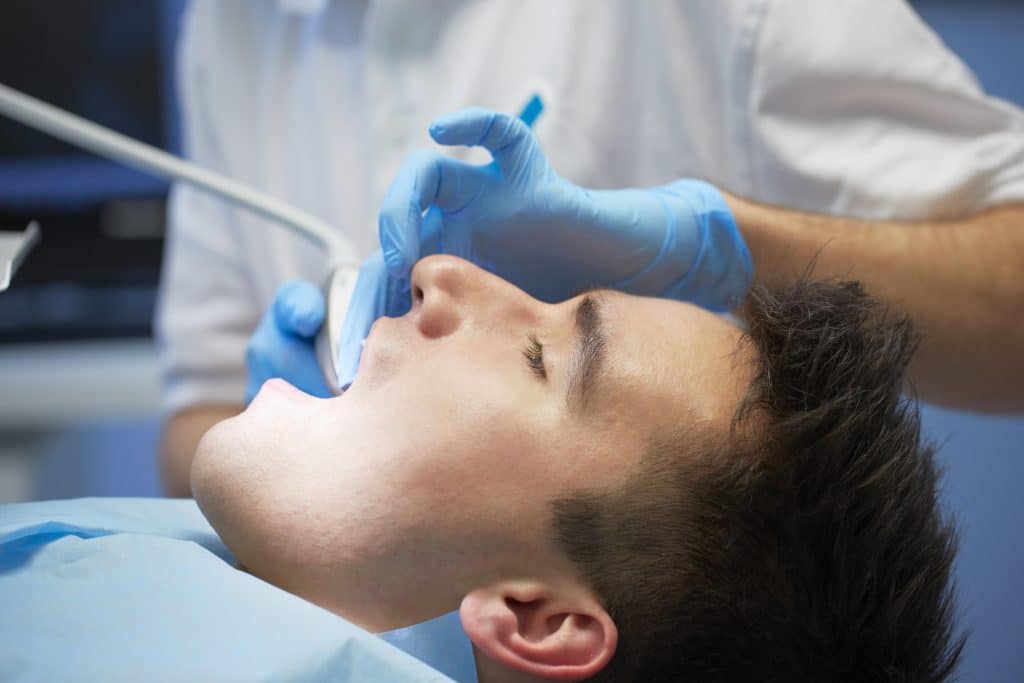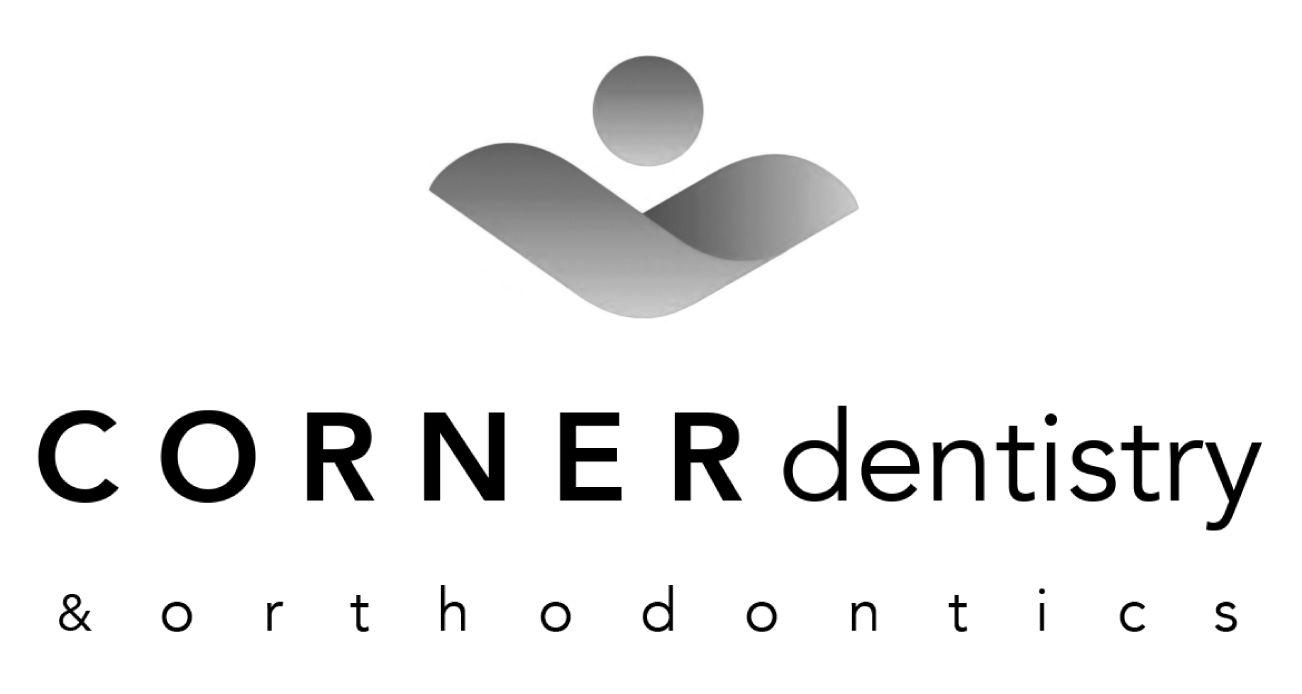Chipped teeth can happen unexpectedly to anyone, whether it’s from biting down too forcefully on a piece of candy or unintentionally grinding teeth during the night. Dealing with a chipped tooth is not only potentially painful but can also impact your smile, oral health, and confidence.
Seeking prompt chipped tooth repair is crucial to address both the discomfort and the aesthetic concerns associated with such dental issues. If you can’t see a dentist soon, though, there are some alternative remedies that may help you until you are able to see a professional.
Common Causes of Chipped Teeth

A chipped tooth can occur for many reasons. From sudden traumas to the gradual effects of aging, each cause has an impact on your overall dental well-being.
Trauma – If you suddenly fall, have a sports injury, or an accident, you may experience trauma to the mouth which can lead to a cracked tooth or teeth. Having a trauma-caused chipped tooth is likely to result in some pain.
Biting down too hard – Some people like to chew ice, popcorn kernels, and other hard food items. Although this can be soothing or tasty, it can lead to chipped teeth, especially if the teeth are already weakened.
Teeth grinding, or Bruxism – Clenching or grinding your teeth can cause excessive wear to them and can lead to chipping over time.
Poor dental hygiene – Neglecting your oral hygiene can make your teeth weaker and more susceptible to chipping.
Age-related wear – As you age, your teeth wear down naturally which can make them more prone to chipping if you aren’t careful.
Chipped teeth may or may not cause pain—it will depend on the severity of the chip. A minor chip may cause no sensitivity, but a more severe one could expose the inner layers or the tooth which will cause pain. A badly chipped tooth can also raise your risk of infection.
It’s important to get the chipped tooth repaired by a professional as soon as possible, even if it appears to be a minor incident. A dentist will be able to determine the right course of treatment for you and prevent any other damage from occurring to your tooth.
Coping with a Chipped Tooth Until Treatment
If you have a chipped tooth, you should seek out professional treatment to have it properly repaired. However, chipped teeth can occur at any time and you may not be able to see someone right away.
To cope with a chipped tooth until you can get it repaired, consider the following tips.
Rinse your mouth – Gently rinse your mouth with warm water to help clean the area and remove any leftover fragments. This will help reduce the risk of infection.
Save broken pieces – Try to locate the broken piece or pieces of the tooth and save them in a sterile container. Your dentist may be able to use them in the repair process.
Use dental wax – If your tooth has a sharp edge, you can cover it with dental wax which is available at most drugstores. This will help protect the tooth and the rest of your mouth.
Take over-the-counter pain relief – Chipped teeth can cause pain. If you are experiencing discomfort, take over-the-counter pain medications as directed per the instructions.
Avoid certain foods – Sugary, hot, and cold food may cause pain to a chipped tooth. It’s also important to avoid chewing on that side of the mouth if you can.
These steps are only to help minimize discomfort and pain until you can seek out professional dental treatment. Do not attempt a self-repair of a chipped tooth, such as super glue or other adhesives. They can lead to complications and infections, making the problem much worse.
Even if it doesn’t cause immediate pain, a chipped tooth should be addressed by a dental professional, like Dr. Roy Shim, to prevent potential complications and ensure proper restoration.
How a Chipped Tooth is Repaired

To repair a chipped tooth, your dentist will examine the tooth to determine the best course of treatment. They will look at the extent of the chip, check for any underlying damage, and consider the overall health of the tooth.
Depending on the severity of the chip, your dentist will recommend one of the following treatments for repairing your chipped tooth.
Dental Bonding
A minor chip will often require simple dental bonding, which is common and minimally invasive. A tooth-colored composite resin is applied to the chipped area and then shaped to match the natural contours of the tooth. It is then hardened with a special light. Dental bonding is cost-effective and fast while providing a natural-looking result.
Dental Crown
If you have extensive damage to your chipped tooth, your doctor may suggest a dental crown that will restore its strength, shape, and appearance. The process typically involves removing a portion of the damaged tooth’s outer layer to make room for the crown. Impressions are then taken to ensure the crown is tailored precisely to fit your tooth.
The crown, which can be made from various materials such as porcelain, metal, or a combination of both, is then securely cemented onto the prepared tooth. The cost of a dental crown will vary based on the material that is used.
Veneers
Veneers are a good choice for chips that aren’t deep and are on the front-facing teeth. They are thin shells, made from porcelain or composite material, and are specifically designed to cover and enhance the appearance of a chipped tooth.
The application of veneers involves a minimally invasive procedure compared to other treatments. The dentist removes a small amount of the tooth’s enamel to create space for the veneer, ensuring a snug fit. Impressions are then taken to custom-design the veneer to match the natural shape and color of your teeth, providing a seamless and natural-looking result.
Tooth Recontouring
Another option for minor chipped teeth repair is tooth recontouring. With this option, the edges of the chipped tooth are reshaped and smoothed to improve its appearance. Your dentist will remove a small amount of enamel from the chipped tooth, while contouring its edges to create a pleasing shape. This technique is good for addressing minor chips and irregularities that may compromise the tooth’s appearance.
The procedure is generally quick and comfortable, and it can often be performed in a single dental visit. By gently sculpting the tooth’s surface, the dentist can repair the chipped tooth. While this method can be used for minor chipped teeth, it cannot be done for chips that have damaged the integrity of the tooth.
Dental Implants
In cases where a chipped tooth is severely damaged and cannot be saved, you may need to have it extracted and replaced with a dental implant, or artificial tooth, that is anchored to the jaw bone. The dental implant replicates the natural tooth in both function and appearance, offering a lasting solution for individuals dealing with irreparable tooth damage.
Through a surgical procedure, a titanium implant is carefully inserted into the jawbone, gradually integrating with the bone to establish a secure base for the replacement tooth. This approach not only replaces the missing tooth but also preserves the structural integrity of the jaw, promoting enhanced oral health and overall well-being.
How Much Does Chipped Tooth Repair Cost
The cost of repairing a chipped tooth can vary widely, influenced by factors such as the severity of the chip, the tooth’s location, the required treatment, and the location of the dental practice.
For example, dental bonding can range from $100 to $400 per tooth. However, dental crowns for more severe chipped teeth can range from $800 to $3,000 per tooth depending on the material and complexity. Tooth recontouring typically tends to be more cost-effective at only $50 to $300 per tooth, but ultimately your dentist will make suggestions as the best course of treatment for your chipped tooth.
Dental insurance may cover some of the cost of a chipped tooth repair, but it will depend on the coverage and reason for the chipped tooth.
Strategies to Prevent Chipped Teeth
While chipped teeth can happen to anyone for a variety of reasons, there are some strategies you can take to improve your oral health and prevent your teeth from chipping.
- Use mouth guards – If you participate in contact sports or activities with a risk of falls or collisions, wearing a custom-fitted mouth guard can provide essential protection for your teeth.
- Avoid chewing on hard objects – Refrain from chewing on hard objects like ice, popcorn kernels, or non-food items. This habit can weaken tooth enamel and increase the risk of chipping.
- Practice good oral hygiene- Maintain a regular oral hygiene routine, including brushing your teeth twice a day and flossing daily. Strong and healthy teeth are less prone to chipping.
- Have regular dental check-ups – Schedule routine dental check-ups to identify and address any potential dental issues before they lead to chipped teeth.
- Address your teeth grinding – If you grind your teeth, especially during sleep, discuss this with your dentist. They may recommend a custom-fitted night guard to protect your teeth.
- Be mindful of foods – Be cautious with foods that are particularly hard or have the potential to cause damage. Avoid biting on exceptionally hard candies, nuts, or similar items.
- Use scissors: Refrain from using your teeth as tools, such as opening packages or tearing through items. Use scissors or the appropriate tools for these tasks.
- Maintain a healthy diet: Eat a balanced diet rich in calcium and other nutrients that support strong teeth and bones.
By following these strategies, you can help reduce the chance of your teeth chipping while improving your overall health. If you have specific concerns or risk factors, such as aging teeth, it’s important to talk to your dentist at a check-up for personalized recommendations.
Why You Should Seek Professional Help for Chipped Tooth Repair

Seeking professional dental help for a chipped tooth repair is important for several reasons. Dentists are trained to assess the extent of the damage to the tooth and provide appropriate solutions, while offering accurate diagnoses.
Chipped teeth can be sneaky and while they may not hurt or look too bad, there’s still a risk of infection that could destroy the whole tooth. A professional will be able to repair the chipped tooth with solutions that will prevent complications such as infection, damage, or other oral health issues.
Although it can be tempting to DIY chipped tooth repair, you may end up making things worse. A professional on the other hand will not only repair the tooth, but make it look natural, as if you had never chipped it in the first place. In the long run, seeking professional treatment for a chipped tooth repair is not only better for your oral health, but for the aesthetic of your smile.
